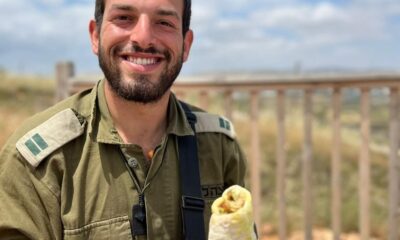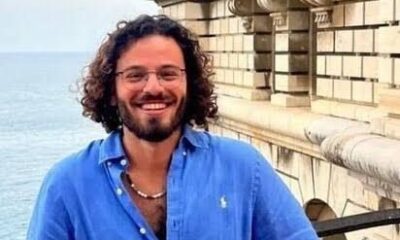
Israel
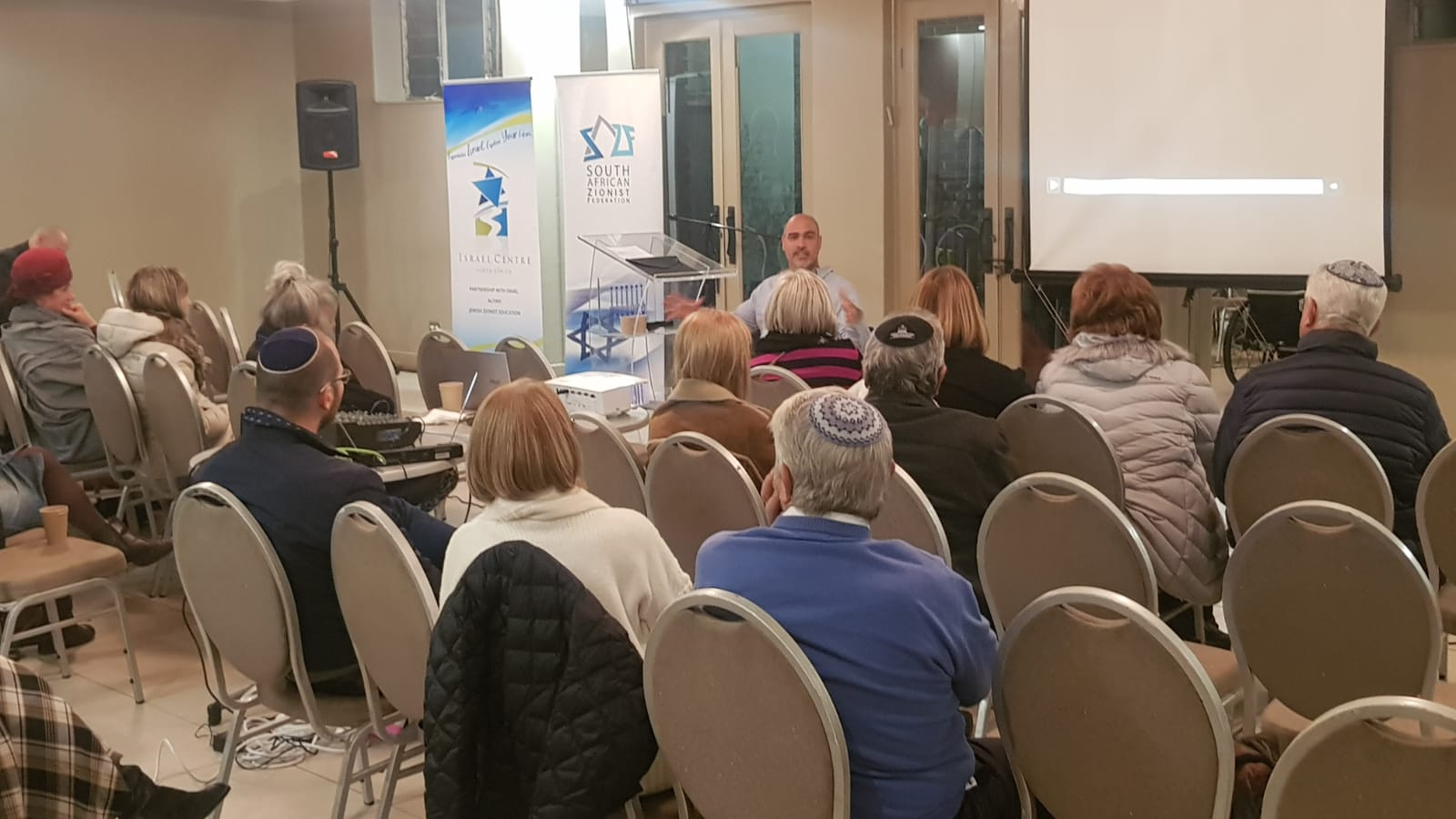
Former IDF soldier recalls shooting that changed his life
When Roei Ben-Tolila was an officer in the elite units of the Israel Defense Forces (IDF), he always told his soldiers, “There’s nothing you can’t do”.
So, when the then 23-year-old Ben-Tolila tried to move his legs after being severely injured during combat in May 2004 and nothing happened, he couldn’t understand why. “For me, that was what I would describe as a crisis, the moment that you can’t rely on the belief that helps you to deal with obstacles and escape,” said Tolila at Sydenham Shul on 20 August during a talk about his life.
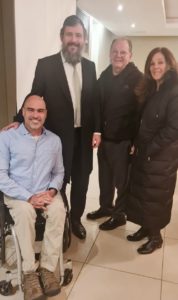
Although he has remained paralysed in a wheelchair since the injury, the 41-year-old is a mentor, facilitator, and leadership lecturer who helps educational, social, and business leaders work together to achieve their goals. He has worked with organisations that specialise in training leaders such as Maoz and the Mandela Institute. He’s the founder of the wheelchair basketball team Beit HaLochem in Jerusalem, and for the past 13 years, has played for the Israeli national team. He’s married to Maya, and is the father of four children.
Born and bred on a kibbutz in Israel, Ben-Tolila went to a premilitary programme after finishing school. “It was supposed to prepare you for the army not only militarily, but also mentally and spiritually,” he said.
After joining the army, Ben-Tolila was the commander of two teams tasked with arresting terrorists who would blow themselves up in public spaces. “Our main mission was to arrest all the terrorists, not when they walked in our streets in Yerushalayim, Haifa, or Be’er Sheva, but when they were in their houses in Palestinian cities,” said Ben-Tolila.
During a mission to arrest a terrorist in the Palestinian city of Jinbeh, Ben-Tolila experienced the moment that changed his life. “Someone started shooting,” he recalled. “I saw the shooting wasn’t supposed to hurt us. I told my soldiers, ‘It’s not a good enough reason to stop our mission, we’re to continue. Remember, there’s nothing you can’t do, there many things you don’t want to do.’”
Unfortunately, an IDF soldier from another unit made the opposite assumption. “This soldier joined us about two hours before the mission,” said Ben-Tolila. “He had a panic attack. He made a huge mistake. He saw me as a terrorist, and shot me a number of times.”
The soldier in Tolila’s unit who came to save him had a dilemma – “whether to listen to his heart or to what the commander of the mission said two hours before: ‘Don’t take care of wounded soldiers because you can take care of one soldier, but then you risk many other soldiers. Also, please don’t invite the helicopter, as we have a hospital about 10 minutes from here.’”
Nevertheless, the soldier called the helicopter, and tried to save Ben-Tolila’s life in the middle of an urban area where they were exposed to terrorists.
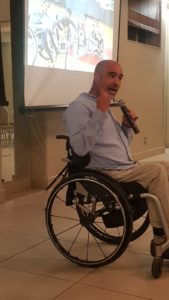
“He was doing everything to save me,” said Ben-Tolila. “After five minutes, he tried to feel my heartbeat but felt nothing. He spoke to the commander, saying, ‘He’s probably not alive anymore.’ He tried to do complicated surgery to save my life while risking his life and that of our teammates. My life was saved thanks to him. He got a medal of honour for his actions. But my life was also saved thanks to three other people, one being Dani.”
Ben-Tolila met the latter a year before he joined the army. They became best friends.
“He didn’t know that it was me,” said Ben-Tolila. “He just knew he had an opportunity to save a person’s life. Even though they were told that the wounded soldier was probably no longer alive, they chose to land a helicopter, piloted by Dani, in an unauthorised place, and saved my life.”
Ben-Tolila was so severely injured, doctors told his family and Maya, his then girlfriend, later that it was probably his last hour.
“According to the doctors, the second scenario, if I stayed alive, would probably be to suffer brain damage,” said Ben-Tolila. “The third scenario, which the doctors said would be a miracle, was that I would wake up and suffer a spinal-cord injury, but my head would be fine.”
When Ben-Tolila woke up fully functionally mentally, his family members had the happiest day ever, he said. “They experienced a miracle. For me, it was the saddest moment in my life.”
He lost 20kg in two weeks, his days as a commander were over, and no solution could be found to his paralysis.
However, he forgave the soldier who shot him.
Ben-Tolila moved to a rehabilitation centre before a doctor took him to an “amazing” place for wounded soldiers. “I could play many types of sport there such as wheelchair table tennis and basketball.”
In 2006, “a few days after the last Monday of the Second Lebanon War, at 20:00, it was the wedding of someone I knew. At the same time, less than 2km from there, Dani was buried. His friends had to take a significant decision. Do we go to the wedding or the funeral? For me, it was even harder because Dani was the guy who saved my life. I never had the chance to get closure in our relationship.”
Ben-Tolila never thanked Dani for saving his life. “I thought it would embarrass him because he was a modest, humble guy. I thought that according to him, he just did his mission.”
Unsure what to do, Ben-Tolila and his friends phoned Dani’s father who said, “The funeral won’t be less sad if you’re not there, but the wedding will be less happy.” Thus, they went to the place where they could influence the result.





